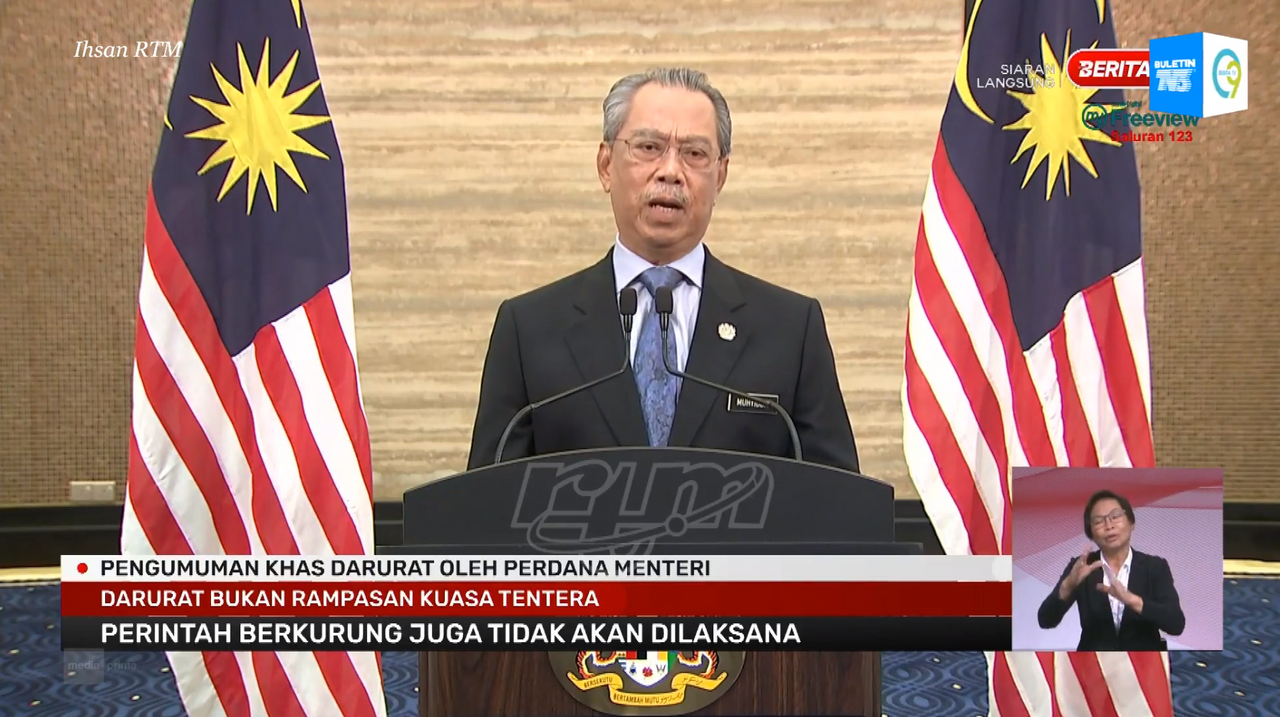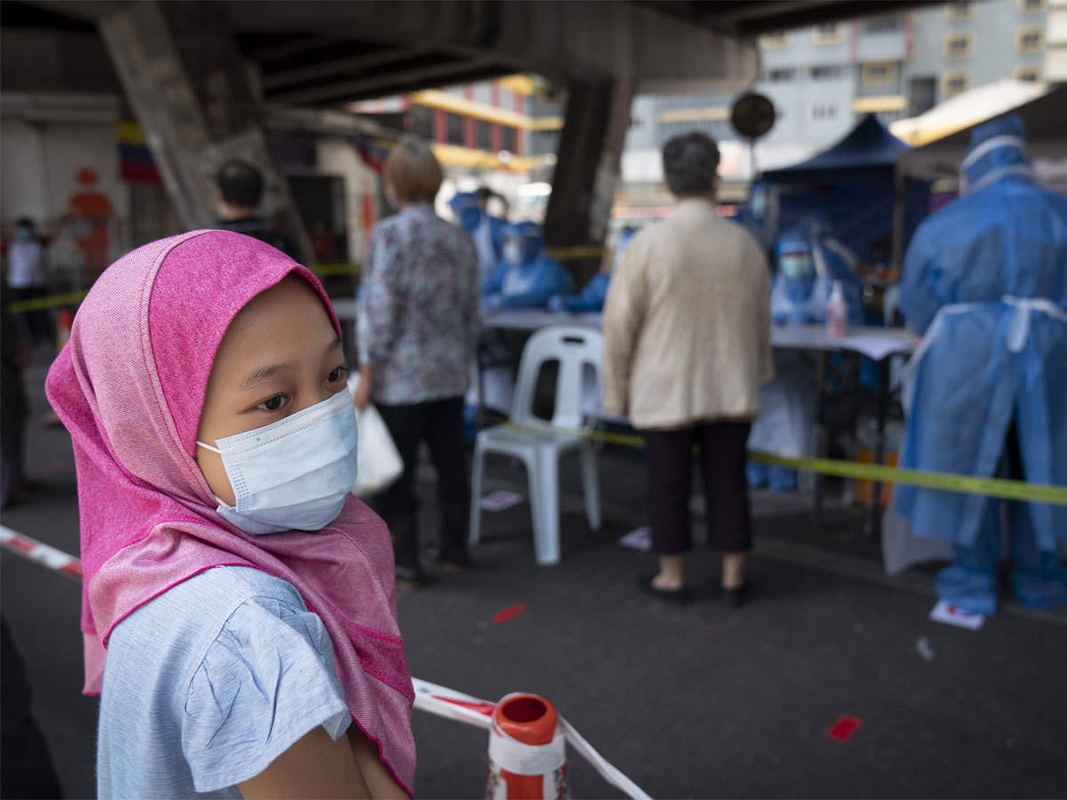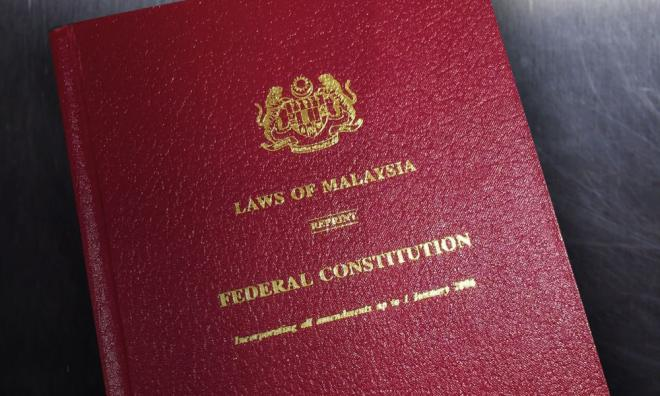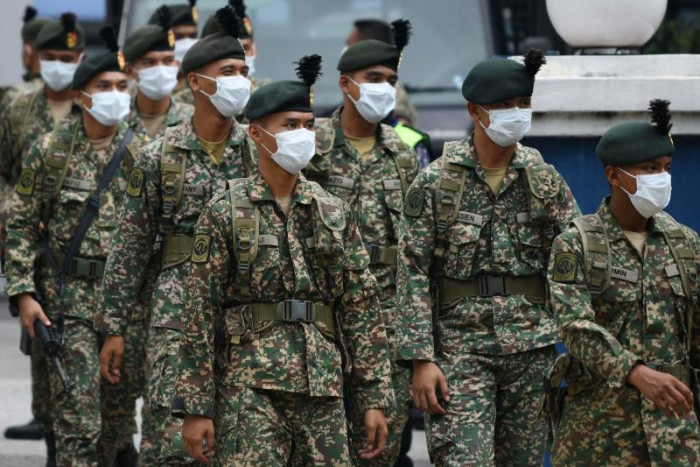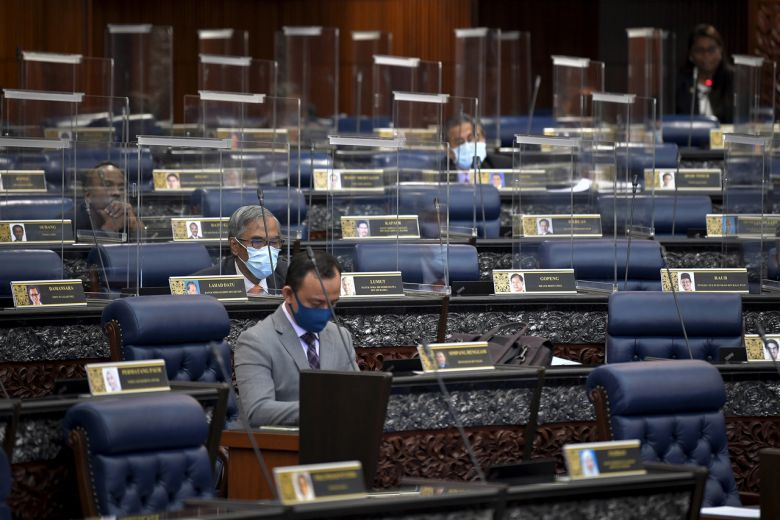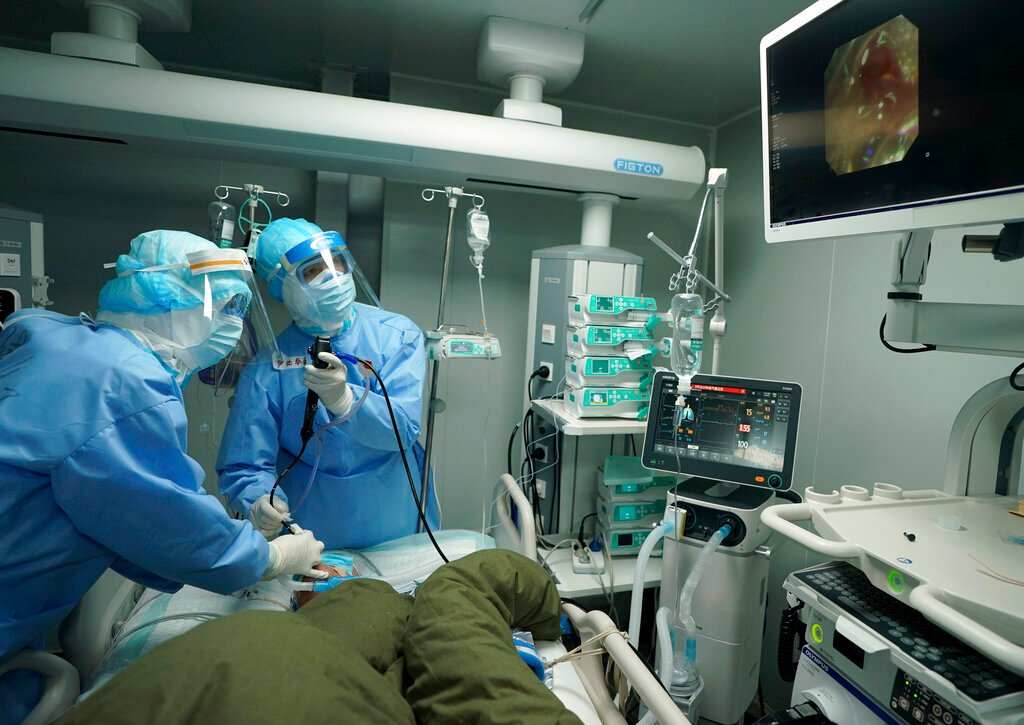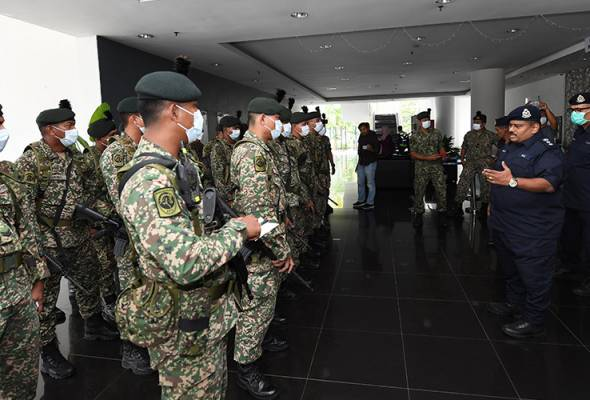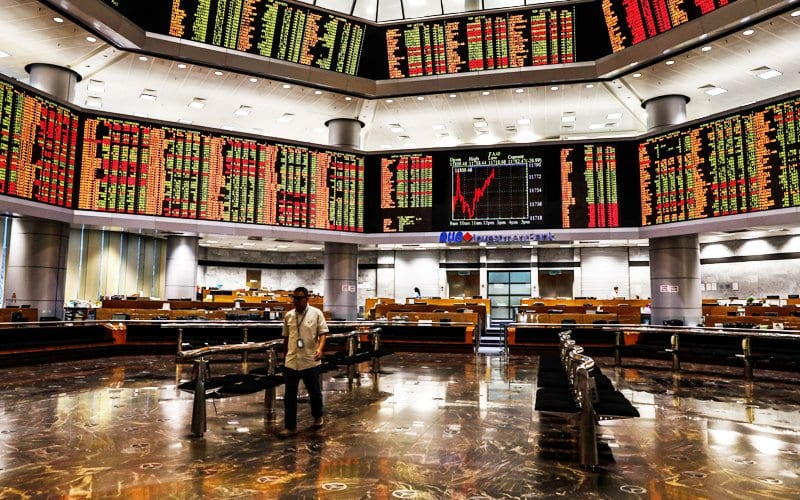#Darurat2021: What You Need To Know About The National Emergency
"This period of emergency will give us much needed calm and stability," said the Prime Minister.
In a televised address this morning, 12 January, Prime Minister Tan Sri Muhyiddin Yassin announced that Malaysia is currently under a national emergency that could potentially last up to eight months
The Yang di-Pertuan Agong's consent for a national emergency comes after Muhyiddin had yesterday, 11 January, reinstated the Movement Control Order (MCO) in five states and three Federal Territories.
The reinstatement of the MCO is aimed at curbing the alarming spread of COVID-19, which is crippling the country's healthcare system.
"Our healthcare system is under tremendous pressure now than at any other time since the start of the pandemic," said the premier, adding, "As I have said before, unprecedented situations call for unprecedented measures."
"In light of that, the government has decided to implement the Movement Control Order (MCO) for a period of 14 days, starting at 12.01am on 13 January until 26 January 2021."
Why declare an emergency when the government has gone through the trouble to reinstate a MCO?
This story will help you understand Muyhiddin's reasons for seeking consent from Yang di-Pertuan Agong Al-Sultan Abdullah Ri'ayatuddin Al-Mustafa Billah Shah to declare an emergency.
Also, it will inform you about what an emergency is, why it is not a "military coup", and how it will affect Malaysia's economy and judiciary system.
Here are the 10 things you need to know about the government's latest effort to fight the COVID-19 pandemic:
1. An emergency can only be declared when there is a public threat to the country
According to Article 150 and Article 40 of the Federal Constitution, it is stipulated that an emergency can only be declared by the Agong if he is convinced — under the premier's advice — that there is a security, economic, or public order threat.
Malaysia declared an emergency — or darurat in Bahasa Malaysia — numerous times in the past.
For example, in 2013, an emergency was declared in two districts in Johor due to severe haze conditions; in 1977, a statewide emergency was declared due to a political impasse in Kelantan.
Or more infamously, in 1969, the nationwide emergency was declared following the 'May 13' race riots.
Each emergency had different levels of control over citizens.
Muhyiddin assured that the sole purpose of the emergency this time is to contain the spread of COVID-19 and set up measures to protect national health.
2. An emergency gives the Agong power to enact laws without the need to go through the Parliament
During an emergency, laws can be passed instantly without the lengthy process of getting bills drafted, bringing them to the Parliament for debates and votes, and receiving the royal assent from the Agong.
The laws passed during this period are called Emergency Ordinances (EOs) and they cannot be challenged by the courts, reported Malay Mail.
An EO has the same power as any ordinary act and can even overrule the Federal Constitution.
However, while an EO might seem like a powerful tool to run the country with an iron fist, it does have limitations when it comes to matters concerning Islamic law or custom of the Malays, native law or customs of Sabah and Sarawak, citizenship, religion, or language, as stipulated under Article 150(6) and Clause (6A) in the Federal Constitution.
3. This is not a 'military coup'
Muhyiddin said the proclamation of emergency is not an opportunity to seize military power.
"Let me assure you that the civilian government will continue to function. The emergency proclaimed by the Yang di-Pertuan Agong is not a military coup and curfew will not be enforced," said the premier.
He added that government administration, Cabinet, and state council meetings will continue to function as usual, and that administrative machinery and the civil service at both state and federal levels will not be interfered with.
4. Elections will not be held
One of the reasons a proclamation of emergency is required now is to postpone the requirement to hold General Elections or any by-elections.
"Recently, there have been parties trying to push for a General Election," said Muhyiddin.
"I do not intend not to hold an election. The main thing hindering me from advising the Agong to dissolve Parliament and to call for a snap election is the pandemic."
Under normal circumstances, a by-election must be held within 60 days after the seat is vacant. State elections also must be held within 60 days after the State Legislative Assembly is dissolved.
But with the emergency in place, it can overrule the requirement as stipulated in the Federal Constitution.
The Batu Sapi and Gerik parlimentary seats have been vacant since the passing of Datuk Liew Vui Keong and Datuk Hasbullah Osman on 2 October 2020 and 16 November 2020 respectively.
Besides that, the 12th Sarawak State Election, which must be held before June 2021, is also approaching.
Although a districtwide emergency has been declared in Batu Sapi and Gerik, a nationwide emergency could prevent any level of election from taking place.
5. Dewan Rakyat will not convene
As mentioned earlier, during an emergency, an EO can overrule most provisions under the Federal Constitution.
This includes the requirement that the Dewan Rakyat convene within six months after the last sitting.
Without the Parliament sitting, it will render the Opposition powerless as they no longer have the political platform to push for a vote of no-confidence against the Prime Minister or pressure him to step down.
This will give the Perikatan Nasional (PN) some stability in governing the country without fearing parties in the coalition will plan a coup against the premier.
6. An EO will be used to borrow help from private hospitals
With the emergency in place, Muhyiddin said several EOs can be proclaimed by the Agong to
use private hospital assets temporarily for the purpose of curbing the COVID-19 pandemic.
Other than hospitals, EOs can also be used to temporarily possess land, buildings, or movable property of a private hospital to treat COVID-19 patients.
"Accordingly, the government can also get more exclusively involved in the private sector, including private healthcare facilities, to help ease the burden borne by the government, especially public hospitals," he said.
"Through this ordinance, assistance that can be obtained from the private sector include human resources, expertise, facilities, assets, testing laboratories, and utilities."
In addition, Muhyiddin said the EO shall also be used to facilitate healthcare management and overcome any rules that might complicate the delivery of public health services.
7. An EO to empower the soldiers
"An ordinance may also be proclaimed to provide enforcement power to the Malaysian Armed Forces (ATM) — on top of its existing power — to match with the powers held by the Royal Malaysia Police (PDRM) under the Criminal Procedure Code or any other relevant law enforcement," Muhyiddin said.
ATM will also be empowered to help perform health-related functions and the functions performed by other civil servants combating the pandemic.
"In accordance with the proclamation of emergency, national border control will also be tightened by empowering military personnel — working along with police and immigration officers — to have the authority to arrest illegal immigrants and anyone who enters the country through the borders," he added.
8. An EO to stiffen punishments on people who violate MCO rules
Muhyiddin said an EO may also be proclaimed to amend the Prevention and Control of Infectious Diseases Act 1988.
He said the purpose of it is to increase the effectiveness of the enforcement of this Act and to set as a deterrent.
"This includes increasing penalties or punishments for anyone who violates the law and regulations related to COVID-19 pandemic control," he said.
9. An EO to control prices of goods
Besides, the premier also said that an EO may also be proclaimed to protect against economic sabotage, monopoly, and excessive price increase of goods.
Any business owners who profiteer during this period will face stricter enforcement and heavier penalties.
10. Muhyiddin promises not to tamper with the judiciary system and reassures foreign investors' confidence
He said his administration will uphold the independence held by the judiciary system and will never interfere in court matters.
National regulatory bodies, such as Bank Negara Malaysia, the Securities Commission Malaysia (SC), as well as Bursa Malaysia, will continue to play their role as catalysts, regulators, and facilitators for companies and the market.
"To all the stakeholders keenly monitoring what is happening in Malaysia, I emphasise that Malaysia is open for business," said the premier in English.
"In facing these challenging times, this period of emergency will give us much needed calm and stability, as well as enable us to focus on economic recovery and regeneration."
"We remain committed to good governance in these times and we have a robust and dynamic regulatory ecosystem. We must remember that the government has a six-stage strategy in place for economic recovery since March last year and were incorporated in Budget 2021."
"Continued stability will enable us to sustain and build upon the economic recovery trajectory we have been working hard for since last year."
